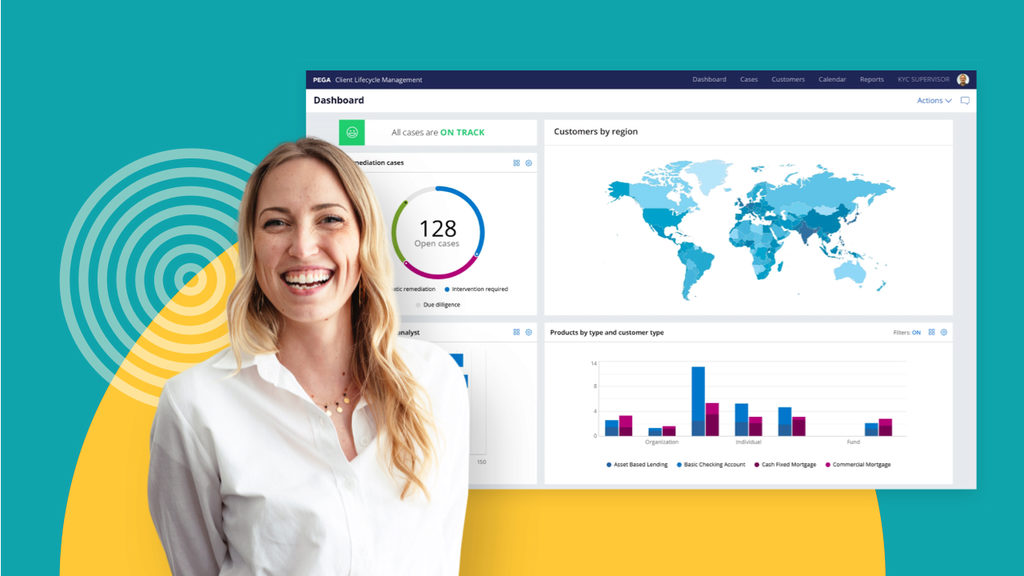Video
Crisis Loan Concessions
Individuals and companies across the world are struggling to make their loan payments. Many financial institutions are providing assistance to their customers by allowing for special concessions during this time. However, they are struggling to support these requests in a managed and systematic manner. Pega Crisis Loan Concessions helps banks:
- Enable loan concessions, such as delaying payment of principal and/or interest, waiving late payment fees, and reducing interest rates
- Adhere to regulations so loans are not reclassified as distressed assets
- Infuse empathy into their collections approach
Transcript:
[Narrator] Times of financial crisis usually result in a sudden massive increase in call volumes into a bank, as customers fear for their ability to make payments against a whole raft of financial services products. If the crisis in question also leads to a reduction in the bank's capacity to provide an effective response, for example, the partial closure of support centers. A perfect storm can build of long call waits, heavy process backlogs, stressed colleagues, and angry customers. Today, we'd like to show you some ideas we have around leveraging Pega technology to help survive and even thrive in crisis scenarios. We'll suggest a five stage approach from a single platform that can interact and communicate flexibly with your customers and colleagues to provide a swift eligibility triage. Then, take your data to give you an idea of the road ahead as the economy recovers. All whilst ensuring that you stay on top of fast changing legislative frameworks. We start with the capacity to capture data. A customer, John, calls into U-Plus Bank to talk to an agent regarding a payment holiday. Recent legislation has been enacted requesting that banks expedite payment holiday requests without undergoing the usual levels of research. And the resultant request will have no impact on the customer's credit record. A U-Plus Bank CSR picks up the call, identifies the customer, and starts to log a case. A simple capture form is prefixed to any cases that relate to payment queries acting as a triaged point to simplify processing. When the screen loads we can see that some basic eligibility criteria have been passed. In this case, that the customer was not in arrears or delinquency at the start of the crisis. The customer service representative proceeds to ask a few questions, such as his regular employment, and the type of industry he's employed in. By looking at the table, we can show the CSR the level of risk associated to industry. By capturing his present status and the expectation of return to work we can apply some basic logic to suggest an appropriate solution. If he's in a high risk industry and is expecting to be out of work for less than four months offer a payment freeze. If it's any longer, offer a payment and interest freeze at the CSR's discretion. The CSR confirms with John that no further action is required and that his credit record will not be affected by this change. We can see that John's status has also been updated, detailing an end date for the present payment holiday. In the CSR home screen, we can see a series of widgets that give us an insight into the team's performance. This includes statistics on messaging cues and case volume. For a more strategic view, we switch into the dashboard where the data collected by the triage form is visualized, allowing us to see metrics such as, volume by case type, offers selected, and industry risk association. Once you've built the functionality to gather the information, it makes sense to leverage this wherever possible. By utilizing Pegas mashup capability, you can deploy active forms into websites, mobile phones, and existing business applications with ease. But it doesn't stop there. The business logic can also be extended to ensure that customers are guided correctly in case of failing to meet eligibility criteria. In the background, orchestration is running making calls to core banking systems, setting cases for callback, and sending communications across varied channels. John receives a templated email and SMS from U-Plus, confirming his holiday acceptance. A couple of months later, certain areas of the economy are struggling more than others. The authority legislates that workers in selected industries are to be offered a blanket additional three months payment holiday. In a matter of days, an agile development team builds a control panel, which filters for industry type, flags the payment holiday end date, and sends an automated email and SMS confirming the change to all affected. With this process, the bank is able to very quickly leverage the data it has collected and reduce its administrative overhead on maintaining customers, who themselves are grateful for fast and accurate communications in challenging times.
Etiqueta
Recursos relacionados
-
Video
StepChange: adopción de una visión tipo "el cliente primero" para simplificar el servicio
-
Webinar
Gestión del ciclo de vida de los clientes y KYC: Estrategias para la transformación digital en la próxima normalidad
-
Libro electrónico
Cuatro pasos hacia una estrategia de servicio excepcional durante este tiempo de alteración

Investigación y conocimientos recomendados
Vea las novedades, lo próximo y las tendencias actuales.

Por qué elegir Pega
Un software excepcionalmente potente no es lo único que nos diferencia.
